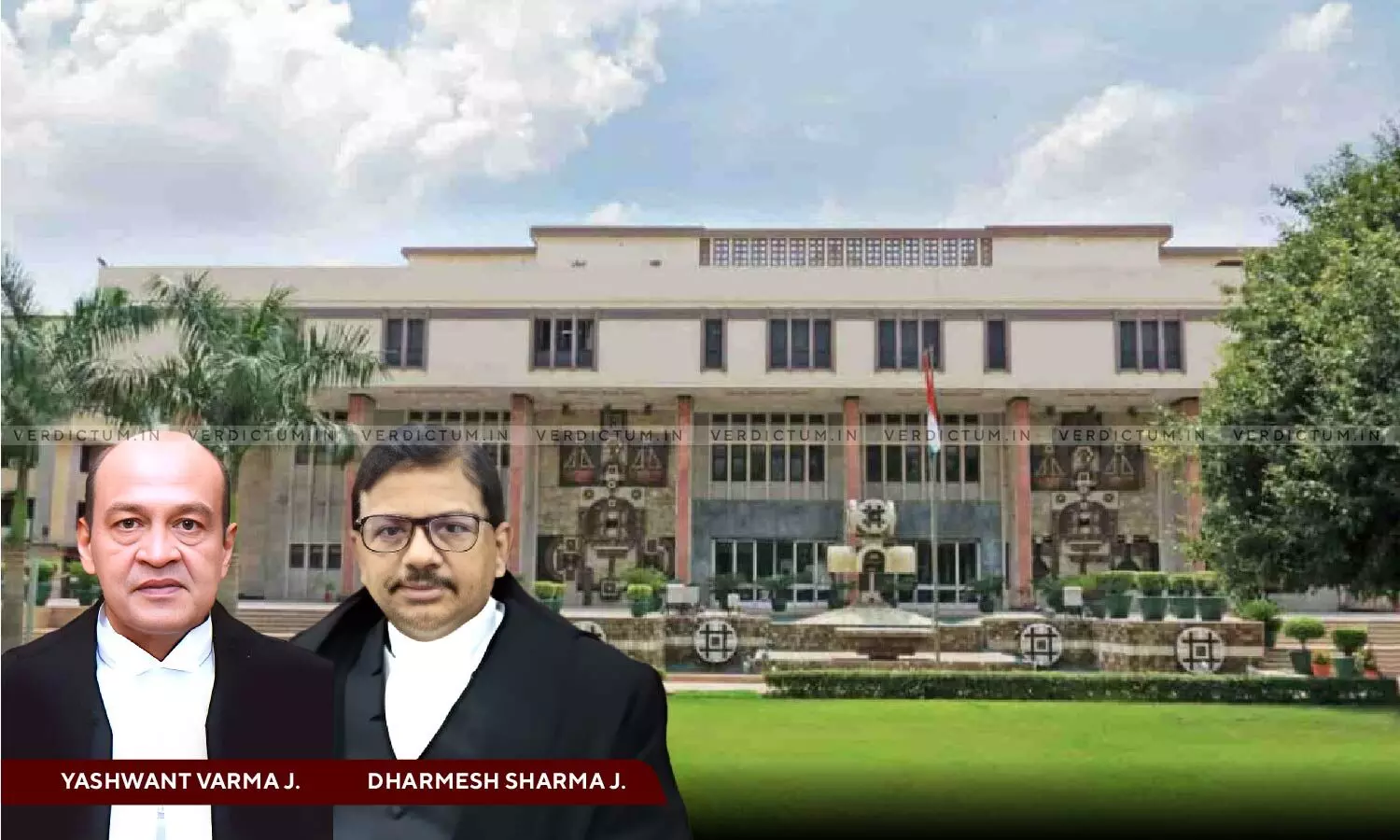
Once Claim For Refund Stands Embodied In Return Itself, There Is No Additional Obligation Placed Upon Taxpayer To File Form DVAT-21: Delhi HC
 |
|While deciding a case related to excess Input Tax Credit refund vis-à-vis tax demand made on basis of default assessment, the Delhi High Court held that once a claim for refund stands embodied in return itself, there is no additional obligation placed upon the assessee to file Form DVAT-21 for claiming excess ITC refund.
The Division Bench comprising of Justice Yashwant Varma and Justice Dharmesh Sharma observed that “Section 38(2) of the DVAT Act uses the expression “recovery of any other amount due under this Act”. The Commissioner in terms of Section 38(2) is thus entitled to apply any amount found to have been paid by an assessee in excess of the amount due from him before making a refund only if there exists an enforceable demand against that assessee. As is manifest on a conjoint reading of Section 35(2) and 38(2) of the DVAT Act, as long as objections remain pending with the OHA, any amount claimed by the respondents would clearly not answer the description of an amount due or payable as contemplated under Section 38(2)”.
Senior Advocate Tarun Gulati appeared for the Petitioner, whereas Advocate Satyakam appeared for the Respondent.
The brief facts of the case were that the assessee submitted a self-assessment return and claimed a refund on account of excess Input Tax Credit. Later, notices were issued for default assessment of tax referable to Section 32 of the DVAT Act and demand was raised inclusive of interest and penalty. Then, assessee submitted a revised return and sought a refund. Rejecting such claim, the Department proceeded to issue default assessment notices and raised a tax demand. These default assessment demands were assailed by the assessee by filing objections before the Objection Hearing Authority (OHA). Thereafter, the assessee also made a pre-deposit in terms of the statutory mandate of Section 73(1) of the DVAT Act. Later, reassessment proceedings were undertaken resulting in a fresh and revised demand inclusive of interest and penalty. The OHA thereafter passed a detailed order and reduced the original demand along with interest. After deleting the penalty amount, the OHA framed directions for refund of the pre-deposit.
After considering the submission, the Bench stated that once the objections had been duly lodged online, the mere fact that the Revenue were unable to trace out the objections filed physically would not detract from the right of the assessees to claim refund.
The Bench found from perusal of Section 38 of the DVAT Act, that the claim for refund is to be considered in light of the plain language employed in that provision and principally sub-section (2) thereof which enables the Commissioner to adjust any amount which becomes refundable against tax dues that may exist.
The Bench went on to explain that a claim for refund of tax is liable to be made in Form DVAT-21 only if such a refund is not claimed in the return itself, which is clear from Rule 34(1) which uses the expression "except claimed in the return".
The position is again reiterated in sub-rule (2) and which stipulates that only such claim for refunds may be made in Form DVAT-21 which have not been claimed in any previous return, added the Bench.
The Bench further added that “failure of the Revenue to refund the amount of pre-deposit and even adjusting the sum of Rs. 1,00,00,000/- deposited in that respect on 16 November 2015 is also clearly arbitrary and untenable. A pre-deposit does not partake the character of a tax or duty. Those are sums which are deposited by an assessee solely for the purposes of pursuing its remedy of appeal. The Revenue were neither entitled in law to retain the pre-deposit amount of Rs. 1,00,00,000/- nor could it have been utilized for adjustment purposes”.
Therefore, finding that the claim for refund stood duly embodied in the revised return, the High Court allowed the petition and concluded that since the assessee had duly filed objections before the OHA and in terms of Section 35(2) of the DVAT Act, the demand as raised in terms thereof could not have been enforced.
Flipkart India Pvt Ltd v. VAT Officer [Neutral Citation: 2023: DHC: 5833-DB]
Click here to read/download the Judgment